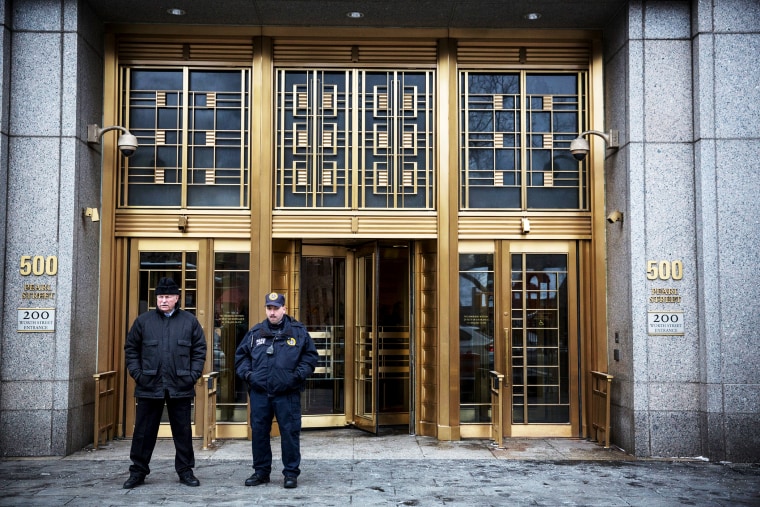What if you held a major terrorism trial in New York City and no one noticed?
Suleiman Abu Gaith, Osama bin Laden's son-in-law and an extremist preacher called upon by Al-Qaeda's fallen leader to deliver the group's message to the masses, was convicted on federal terrorism charges Wednesday morning. Gaith, who was captured in Turkey in February 2013, was charged, tried and convicted in about a third of the time it's taken for the trial of alleged 9/11 mastermind Khalid Sheik Mohammed and his co-conspirators to even get started. Abu Gaith's trial itself took less than a month.
Shortly after President Barack Obama took office, Attorney General Eric Holder announced his intention to try Mohammed and his co-defendants in federal court in New York City. Republicans erupted in paroxysms of fear, as though Ragnarok would ensue the moment the defendants stepped in a courtroom.
Former Vice President Dick Cheney said that Mohammed would "be able to go in whenever he's up on the stand and proselytize, if you will, millions of people out there around the world including some of his radical Muslim friends and generate a whole new generation of terrorists." Former Indiana Republican Rep. Mike Pence, now governor of Indiana, said at the time he thought it was the "most naïve and dangerous decision I have ever witnessed the United States government make." Former Arizona Republican Rep. John Shadegg asked then-New York City Mayor Michael Bloomberg, "how are you going to feel when it's your daughter that's kidnapped at school by a terrorist?"
Alongside the fear campaign, Republicans argued against historical precedent that federal courts simply weren't equipped to handle hardened terrorists -- even though it's federal, not military courts that have the most experience dealing with terrorists. Republican South Carolina Senator Lindsey Graham argued that "[t]hese people aren't robbing liquor stores. They're part of terrorist organizations that are waging war against the United States," and warned that the trial would "become a zoo."
It worked. Republicans frightened New York Democrats into opposing holding the trial in New York, and eventually anywhere in the U.S. Within the White House, Obama's political advisers were telling him pushing for a New York trial wasn't worth the political headache it was causing. Obama and Holder backed down, and in 2011 military commissions charges were sworn against Mohammed and his co-defendants.
While military courts-martial have due process standards similar to those in civilian courts, the military commissions were created specifically to try suspected Al Qaeda members and their allies, and do so in a manner that tilts the proceeedings in favor of the prosecution.
During the Bush administration, Republicans had no objection to trying some terrorist in federal court and others in military commissions. The Obama administration's decision to retain the commissions as an option for trying terror suspects at Gitmo, rather than scrapping them altogether, gave Republicans an opening to portray Obama as somehow soft on terrorism for not using them in every instance.
Republican objections to trying terrorism suspects in federal courts have since been proven to be unfounded. The commissions have only convicted eight people in total, and two of those convictions have been overturned, compared to nearly 500 in federal courts since 9/11. The most frequent charges used against military commissions defendants have been declared by federal courts to be off-limits. The commissions themselves have handed out lighter sentences than federal courts in the few trials that have been completed.
It's been three years since charges were sworn against Mohammed and his co-defendants, Abu Gaith, an actual Al Qaeda preacher, was convicted in about a year, and somehow without creating "a whole new generation of terrorists."
